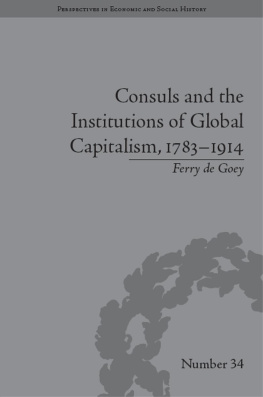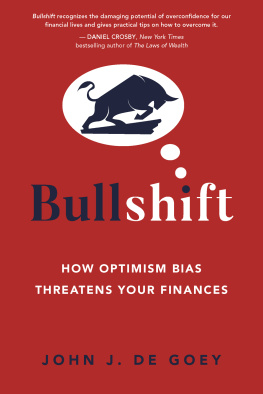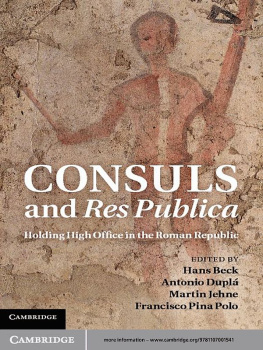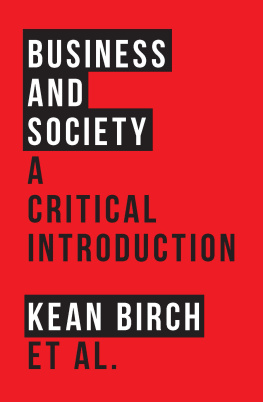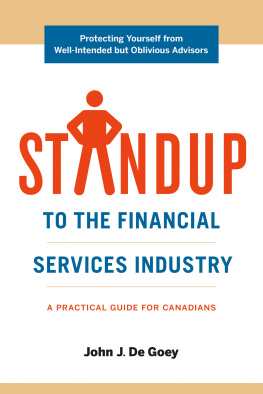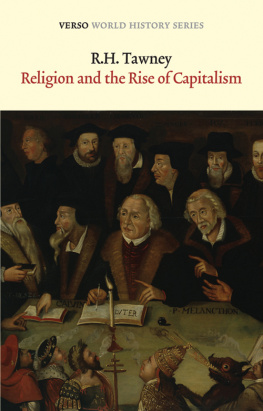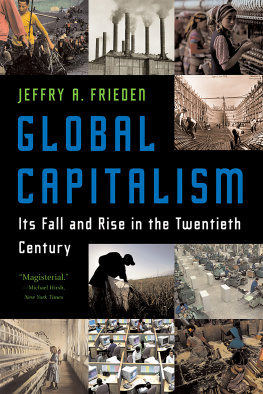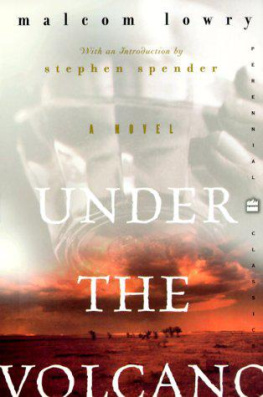CONSULS AND THE INSTITUTIONS OF GLOBAL CAPITALISM, 17831914
PERSPECTIVES IN ECONOMIC AND SOCIAL HISTORY
Series Editors: | Andrew August Jari Eloranta |
TITLES IN THIS SERIES
1 Migrants and Urban Change: Newcomers to Antwerp, 17601860
Anne Winter
2 Female Entrepreneurs in Nineteenth-Century Russia
Galina Ulianova
3 Barriers to Competition: The Evolution of the Debate
Ana Rosado Cubero
4 Rural Unwed Mothers: An American Experience, 18701950
Mazie Hough
5 English Catholics and the Education of the Poor, 18471902
Eric G. Tenbus
6 The World of Carolus Clusius: Natural History in the Making, 15501610
Florike Egmond
7 The Determinants of Entrepreneurship: Leadership, Culture, Institutions
Jos L. Garca-Ruiz and Pier Angelo Toninelli (eds)
8 London Clerical Workers, 18801914: Development of the Labour Market
Michael Heller
9 The Decline of Jute: Managing Industrial Change
Jim Tomlinson, Carlo Morelli and Valerie Wright
10 Mining and the State in Brazilian Development
Gail D. Triner
11 Global Trade and Commercial Networks: Eighteenth-Century Diamond Merchants
Tijl Vanneste
12 The Clothing Trade in Provincial England, 18001850
Alison Toplis
13 Sex in Japans Globalization, 18701930: Prostitutes, Emigration and Nation Building
Bill Mihalopoulos
14 Financing Indias Imperial Railways, 18751914
Stuart Sweeney
15 Energy, Trade and Finance in Asia: A Political and Economic Analysis
Justin Dargin and Tai Wei Lim
16 Violence and Racism in Football: Politics and Cultural Conflict in British Society, 19681998
Brett Bebber
17 The Economies of Latin America: New Cliometric Data
Csar Yez and Albert Carreras (eds)
18 Meat, Commerce and the City: The London Food Market, 18001855
Robyn S. Metcalfe
19 Merchant Colonies in the Early Modern Period
Victor N. Zakharov, Gelina Harlaftis and Olga Katsiardi-Hering (eds)
20 Markets and Growth in Early Modern Europe
Victoria N. Bateman
21 Welfare and Old Age in Europe and North America: The Development of Social Insurance
Bernard Harris (ed.)
22 Female Economic Strategies in the Modern World
Beatrice Moring (ed.)
23 Crime and Community in Reformation Scotland: Negotiating Power in a Burgh Society
J. R. D. Falconer
24 Policing Prostitution, 18561886: Deviance, Surveillance and Morality
Catherine Lee
25 Narratives of Drunkenness: Belgium, 18301914
An Vleugels
26 Respectability and the London Poor, 17801870: The Value of Virtue
Lynn MacKay
27 Residential Institutions in Britain, 17251970: Inmates and Environments
Jane Hamlett, Lesley Hoskins and Rebecca Preston (eds)
28 Conflict, Commerce and Franco-Scottish Relations, 15601713
Siobhan Talbott
29 Drink in the Eighteenth and Nineteenth Centuries
Susanne Schmid and Barbara Schmidt-Haberkamp (eds)
30 Merchants and Profit in the Age of Commerce, 16801830
Pierre Gervais, Yannick Lemarchand and Dominique Margairaz (eds)
31 Jewish Immigrants in London, 18801939
Susan L. Tananbaum
32 Commercial Networks and European Cities, 14001800
Andrea Caracausi and Christof Jeggle (eds)
33 A Global Conceptual History of Asia, 18601940
Hagen Schulz-Forberg (ed.)
FORTHCOMING TITLES
Insanity and the Lunatic Asylum in the Nineteenth Century
Thomas Knowles and Serena Trowbridge (eds)
Merchant Communities in Asia, 16001980
Yu-ju Lin and Madeleine Zelin
Development Economics in the Twenty-First Century
Davide Gualerzi and Claudia Sunna (eds)
Early Modern Trading Networks in Europe: Cooperation and the Case of Simon Ruiz
Ana Sofia Ribeiro
Philanthropy and the Funding of the Church of England, 18561914
Sarah Flew
Prostitution and Social Control in Eighteenth-Century Ports
Marion Pluskota
A History of Drink and the English, 15002000
Paul Jennings
Franco Modigliani and Keynesian Economics: Theory, Facts and Policy
Antonella Rancan
RuralUrban Relationships in the Nineteenth Century: Uneasy Neighbours?
Mary Hammond and Barry Sloan (eds)
First published 2014 by Pickering & Chatto (Publishers) Limited
Published 2016 by Routledge
2 Park Square, Milton Park, Abingdon, Oxon OX14 4RN
711 Third Avenue, New York, NY 10017, USA
Routledge is an imprint of the Taylor & Francis Group, an informa business
Taylor & Francis 2014
Ferry de Goey 2014
To the best of the Publishers knowledge every effort has been made to contact relevant copyright holders and to clear any relevant copyright issues. Any omissions that come to their attention will be remedied in future editions.
All rights reserved, including those of translation into foreign languages. No part of this book may be reprinted or reproduced or utilised in any form or by any electronic, mechanical, or other means, now known or hereafter invented, including photocopying and recording, or in any information storage or retrieval system, without permission in writing from the publishers.
Notice:
Product or corporate names may be trademarks or registered trademarks, and are used only for identification and explanation without intent to infringe.
BRITISH LIBRARY CATALOGUING IN PUBLICATION DATA
Goey, Ferry de, author.
Consuls and the institutions of global capitalism, 17831914. (Perspectives in economic and social history)
1. Imperialism Economic aspects. 2. Capitalism Political aspects. 3. Diplomatic and consular service Influence. 4. Economic history 17501918.
I. Title II. Series
338.91091719-dc23
ISBN-13: 978-1-84893-316-3 (hbk)
Typeset by Pickering & Chatto (Publishers) Limited
INTRODUCTION
In 1911 Major Joseph Orton Kerbey (18411913) published An American Consul in Amazonia. In the book he added a poem What People Think about a Consul, by an unknown author. The poem reviews the many functions and duties of consuls, but despite this he is not much respected by society, not even after his death.
In fact, a consul must know and do everything, or
The general cry is, Whats a consul good for?
He must not be old, or young, single or married;
And I really believe that when he is buried
They will still continue to vent all their spleen
Denying him heaven, Sambo or Fiddlers Green.
Kerbey was consul for the United States in the Brazilian port Belm do Par. As Kerbey explains in the following extract, he was appointed in 1891 by Secretary of State James G. Blaine (183093):
I think you are the right man to send out there, as you are a telegrapher and a practical electrician, and we want to know something about the rubber insulation in this electric age, in its relation to reciprocity. When I intimated that I did not know anything of Para, he replied: Thats the trouble with all of us. I am sending you out there to learn something about it, as you have a good nose for news and your training as a newspaper scout qualifies you for collecting and reporting intelligently on the prospects for American business.

